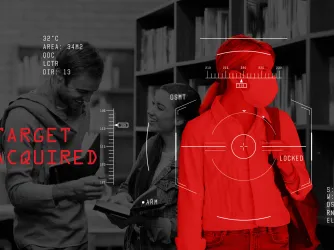Table of Contents
Do School Admins Need to Have a Thicker Skin for Discussion of Social Issues?

I have to admit, I am tempted to have the text of this blog entry consist of the word “yes” and then head home for the day. A thick skin seems so self-evidently critical to the functioning of a free and democratic society that it’s hard to believe people need to be reminded of it.
Yet they do, and among those most in need of a dermatological toughening are administrators at our nation’s high schools (and colleges). Frank LoMonte of the Student Press Law Center (SPLC) brings to our attention a new joint report on civic education from Stanford University and the University of Washington, which finds that, indeed, “[S]chools discourage political disagreement in the classroom by treating as offensive opinions that depart from the community’s dominant view, repressing the opportunity for students to explore diverse viewpoints and unique perspectives.”
As LoMonte comments:
Student journalists and their teachers disproportionately suffer when school leaders cultivate a climate that stifles debate. Civic learning cannot thrive under the level of censorship that the Supreme Court made possible in its 1988 Hazelwood decision, which empowered schools to ban discussions that “associate the school with any position other than neutrality on matters of political controversy.” Increasingly, civic educators are awakening to the reality that the plight afflicting journalism is everyone’s problem.
Scholarship on what is actually best for student learning is fast overtaking school administrators,whose lawyers and lobbyists are desperately clinging to discredited notions of schools’ authority over what young people may think, believe and say.
Head over to SPLC’s website for more.
Image via Shutterstock
Recent Articles
Get the latest free speech news and analysis from FIRE.

Will free expression make a comeback at Haverford College?

FIRE statement on FCC approval of Skydance-Paramount acquisition

The mercenary spyware industry is a menace to global free expression
